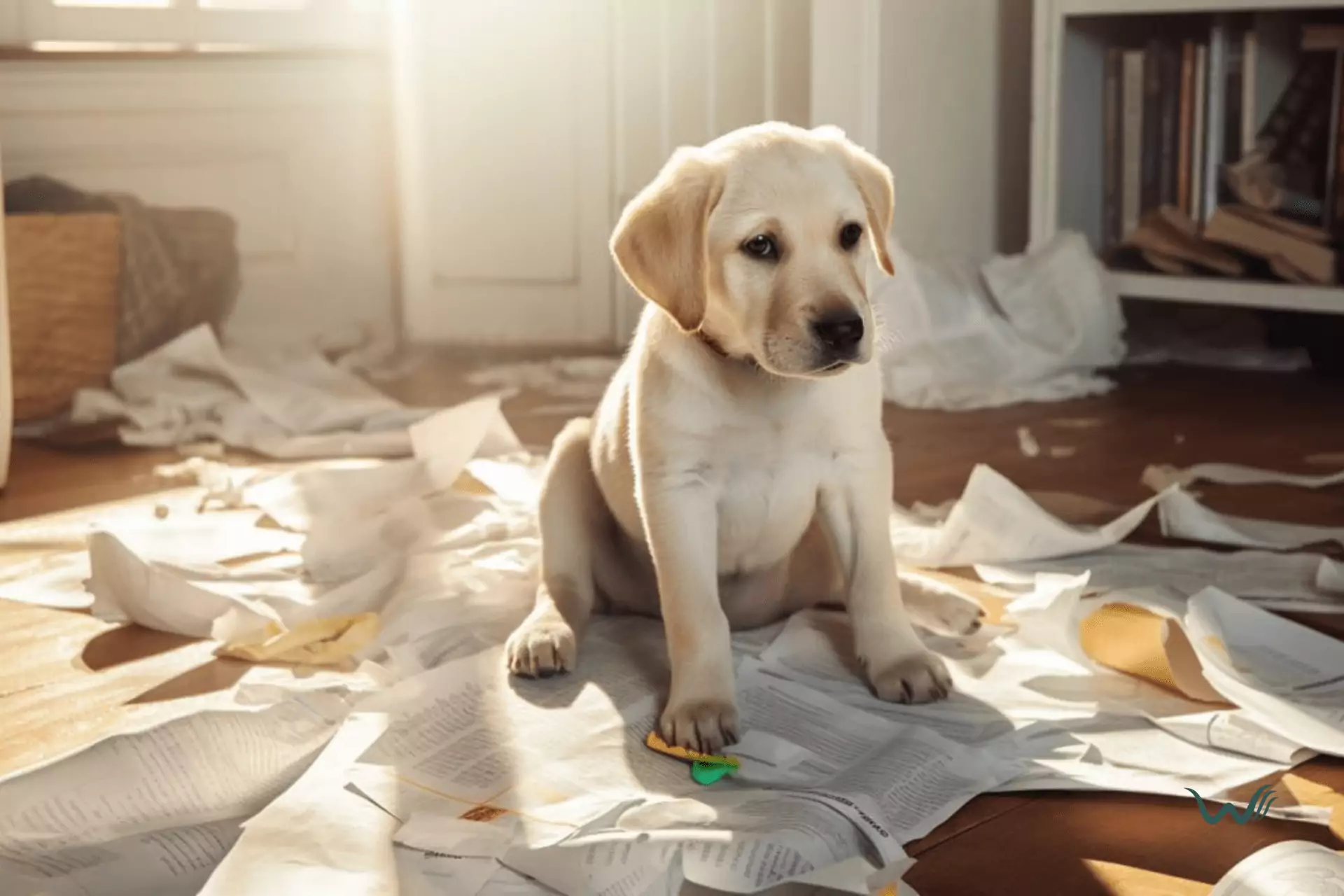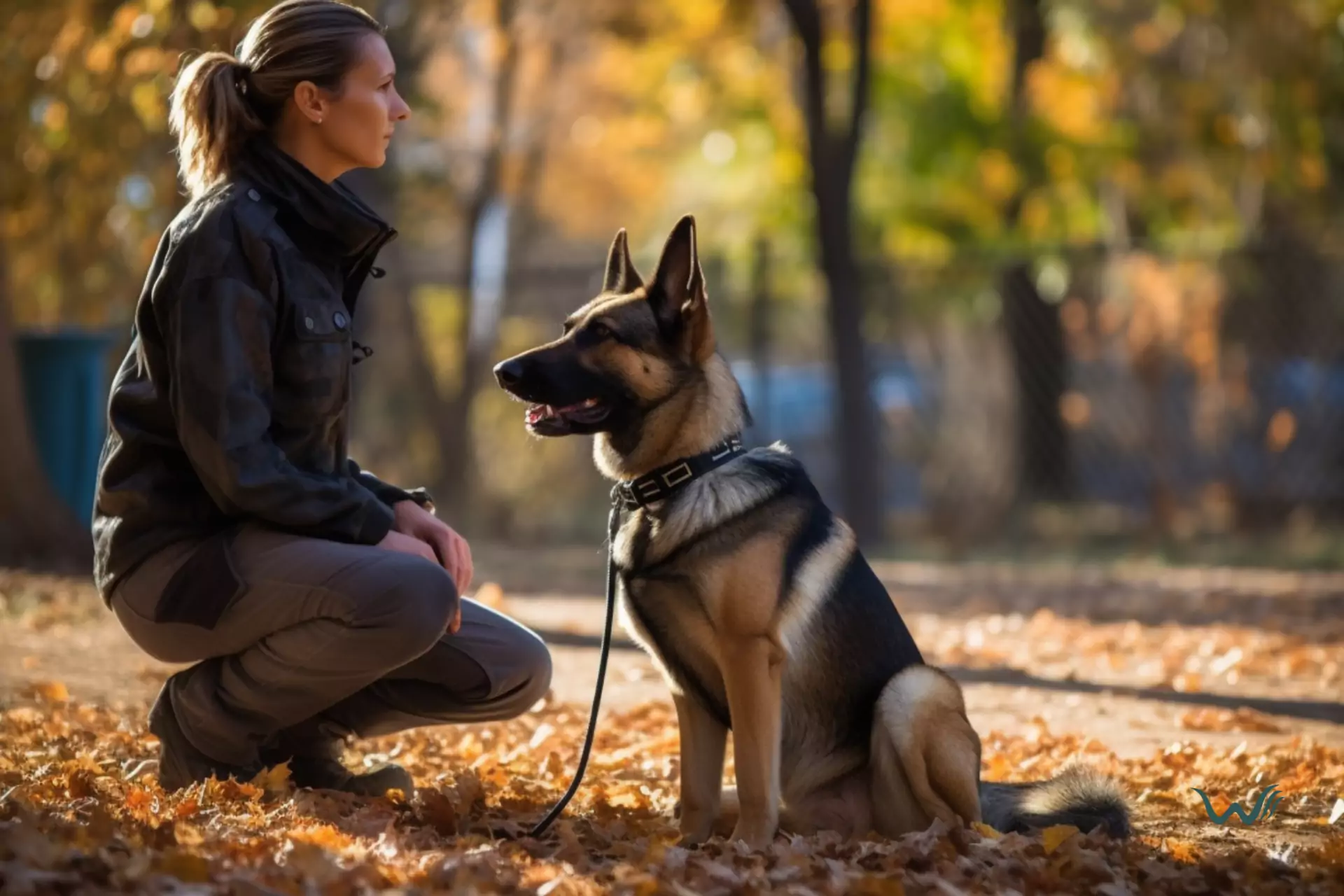

Dealing With Housebreaking Accidents: Tips For Puppy Owners
by Tayyaba Amir
Last updated: April 22, 2024
Verified and Approved by:
Angela Morris,
MSW, LCSW
Fact Checked

Are you a new puppy owner struggling with housebreaking accidents? Don’t worry, you’re not alone! Housebreaking a puppy can be a challenging task, but with the right tips and strategies, you can successfully navigate this stage of your puppy’s life. In this article, we will provide you with practical advice on how to deal with housebreaking accidents, so you can create a clean and comfortable environment for both you and your furry friend.
First and foremost, establishing a routine for bathroom breaks is essential. Puppies have small bladders and need to relieve themselves frequently, so it’s important to take them outside regularly. By following a consistent schedule for bathroom breaks, you can teach your puppy when and where it’s appropriate to go. Additionally, using positive reinforcement techniques, such as treats and praise, will help reinforce good behavior and encourage your puppy to do their business outside.
Key Takeaways
- Establishing a routine for bathroom breaks is essential when housebreaking a puppy.
- Using positive reinforcement techniques, such as treats and praise, can help reinforce good behavior during housebreaking.
- Promptly and thoroughly cleaning up housebreaking accidents is important to prevent future accidents and establish a consistent routine.
- Seeking professional help from a dog trainer or behaviorist is an option if struggling with housebreaking progress and can provide customized strategies and techniques.
Establishing a Routine for Bathroom Breaks
Remember, your puppy is relying on you to guide them and teach them good habits. Start by setting a consistent schedule for bathroom breaks. Take your puppy outside first thing in the morning, after meals, and before bedtime. This will help them understand when it’s time to go potty and prevent accidents inside the house.
In addition to a set schedule, it’s important to pay attention to your puppy’s behavior. Watch for signs that they may need to go, such as sniffing the ground or circling. When you notice these signs, immediately take them outside to their designated bathroom area.
Be patient and give them time to do their business. If they don’t go right away, bring them back inside and try again in a few minutes. Consistency and positive reinforcement are key in establishing a routine that works for both you and your puppy. By establishing a routine for bathroom breaks, you are not only preventing accidents in the house, but you are also setting your puppy up for success. They’ll learn where and when to go potty, which will make the housebreaking process much smoother.
Using Positive Reinforcement for Training
By using positive reinforcement, you can create a loving and supportive environment for your furry friend, helping them learn and grow through praise and rewards. Positive reinforcement is an effective training method that focuses on rewarding desired behaviors rather than punishing unwanted ones. This approach not only motivates your puppy to repeat good behavior but also strengthens the bond between you and your furry friend.
To implement positive reinforcement, it is important to identify the behaviors you want to encourage in your puppy. For example, if you want to train your puppy to go potty outside, you can reward them with praise and treats every time they successfully do so. Consistency is key in positive reinforcement training, so make sure to provide immediate rewards and praise whenever your puppy exhibits the desired behavior.
To help you track your puppy’s progress and stay organized with their training, here is a table that you can use:
| Behavior | Reward | Progress |
|---|---|---|
| Successful potty outside | Treats and praise | Puppy consistently goes potty outside |
| Sit on command | Verbal praise and petting | Puppy sits on command 80% of the time |
| Walking nicely on a leash | Treats and verbal praise | Puppy walks without pulling for 10 minutes |
Cleaning and Removing Odors
To effectively handle housebreaking accidents, you’ll need to thoroughly clean the area and eliminate any lingering odors. When your puppy has an accident inside the house, it’s important to clean up the mess right away. Start by using paper towels or a clean cloth to soak up any urine or pick up any solid waste. Be sure to wear gloves to protect yourself from any bacteria.
After removing the waste, you’ll want to use a pet-friendly cleaner to thoroughly clean the area. Avoid using any cleaning products that contain ammonia, as it can actually attract your puppy back to the same spot. Once you’ve cleaned up the mess, it’s important to eliminate any lingering odors. Even if you can’t smell anything, your puppy’s sensitive nose may still detect the scent and be tempted to go potty in the same spot again.
To remove the odor, you can use a mixture of white vinegar and water. Simply spray the solution onto the affected area and let it sit for a few minutes. Then, blot it dry with a clean cloth or paper towel. Another effective method is to use an enzymatic cleaner, which breaks down the organic compounds in urine and eliminates the odor. By thoroughly cleaning and removing odors, you’ll not only prevent your puppy from returning to the same spot, but you’ll also create a clean and fresh environment for both you and your furry friend.
Dealing with Accidents in the Moment
First things first, when your furry friend leaves you a surprise on the floor, don’t panic! Accidents happen, especially with puppies who are still learning the ropes of housebreaking. Instead, take a deep breath and follow these steps to handle the situation calmly and effectively:
- Stay calm: Remember, your puppy didn’t do it on purpose. Losing your cool will only stress both of you out and may make your puppy fearful or anxious. Stay calm and composed to create a positive environment for training.
- Interrupt the accident: If you catch your puppy in the act, gently and calmly clap your hands or make a noise to startle them. This will interrupt their flow and give you a chance to redirect them to the appropriate spot to finish their business.
- Take them outside: Quickly lead your puppy outside to their designated bathroom area. Use a firm but gentle tone to encourage them to finish their business in the right place. Remember to praise them enthusiastically when they do go to the correct spot.
- Clean up properly: Once you’ve taken care of your puppy, it’s important to clean up the accident properly to prevent lingering odors and avoid future accidents in the same spot. Use an enzymatic cleaner specifically designed for pet accidents to ensure the area is thoroughly cleaned and eliminate any residual odors that may attract your puppy back to the same spot.
Accidents are a part of the learning process for puppies. By staying calm, redirecting them to the appropriate spot, and properly cleaning up, you’ll help your furry friend understand where they should be doing their business. Keep up the positive reinforcement and consistent training, and soon enough, accidents will become a thing of the past.
Seeking Professional Help if Needed
If you’re struggling with your puppy’s housebreaking progress, don’t hesitate to seek professional help. Housebreaking accidents can be frustrating and discouraging, but remember that there are experts out there who can provide guidance and support.
A professional dog trainer or behaviorist can assess your specific situation and create a customized plan to address your puppy’s housebreaking challenges. When seeking professional help, look for a trainer or behaviorist who specializes in housebreaking and has experience working with puppies. They’ll have the knowledge and skills to identify the underlying causes of your puppy’s accidents and provide effective solutions.
They can also teach you techniques and strategies to help prevent future accidents and establish a consistent housebreaking routine. Remember, asking for help isn’t a sign of weakness. It shows that you’re committed to your puppy’s well-being and willing to do whatever it takes to help them succeed.
By seeking professional help, you’re taking a proactive approach to addressing your puppy’s housebreaking issues and setting them up for success in the long run. So don’t hesitate to reach out to a professional who can provide the guidance and support you need.
Frequently Asked Questions
How long does it usually take for a puppy to be fully housebroken?
Housebreaking a puppy can take several months as they learn to control their bladder and understand where to go. It can be frustrating at times, but remember, every accident is a step closer to a fully housebroken pup.
What should I do if my puppy continues to have accidents even after following all the training tips?
If your puppy continues to have accidents despite following all the training tips, don’t worry! Stay patient and consistent with the training. Consider consulting a professional dog trainer for specialized guidance and support. Keep serving your furry friend with love and care.
Can using harsh punishments or scolding my puppy for accidents make the housebreaking process more difficult?
Using harsh punishments or scolding your puppy for accidents can actually make the housebreaking process more difficult. Instead, focus on positive reinforcement and consistency to teach them where to go.
Are there any specific cleaning products or methods that are more effective in removing pet urine odors?
When it comes to removing pet urine odors, using an enzyme-based cleaner can be very effective. While some may worry about the cost, remember that investing in a good cleaner will save you money in the long run by preventing repeat accidents.
How do I know if my puppy’s accidents are due to a medical issue rather than a training issue?
If your puppy is having frequent accidents despite consistent training, it may be a sign of a medical issue. Look for signs like excessive thirst, frequent urination, or changes in behavior, and consult a vet for proper diagnosis and treatment. Remember, their health always comes first.
Certify Your Emotional Support Animal Today

Why You Can Rely on Us?
At Wellness Wag, we believe your pet deserves care rooted in both science and compassion. Each article is carefully researched, written in clear language for pet owners, and then reviewed by qualified professionals to ensure the information is evidence-based, current, and practical for real-life care. Our goal is to help you feel confident in making informed decisions about your pet’s health and well-being.
Reviewed by
Angela Morris, MSW, LCSW
Angela is a licensed clinical social worker with 20 years of experience in patient advocacy and community mental health. She has assisted numerous clients with ESA evaluations and brings a deep understanding of disability accommodations, ensuring that all information is accurate, supportive, and practical.

Written by :
Tayyaba Amir
Last Updated :
April 22, 2024










